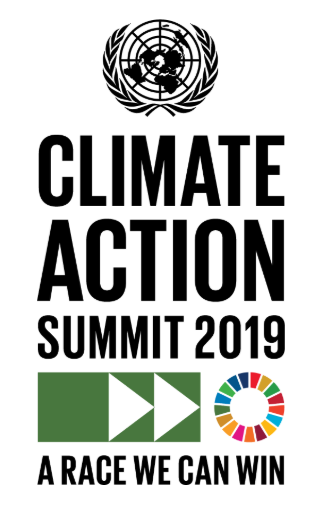Debriefing session on outcomes of the Nature-Based Solutions track of the UN Climate Action Summit
UN Environment Programme (UNEP)
Event details
Description

Debrief session on the outcomes of the Nature-Based Solutions track at the United Nations (UN) Climate Action Summit by Mario Boccucci, Head of the UN-REDD Programme Secretariat.
The UN Climate Action Summit convened by the UN Secretary-General on 23 September in New York was a call for ambition actions by world leaders to step up efforts to address climate change and achieve the goals of the Paris Agreement. It was also an opportunity for redefining people’s relationship with nature.
One of the nine coalitions preparing the Summit focused on ‘Nature-Based Solutions’ to climate change, harnessing nature’s capacity to reduce emissions, enhance resilience, and offer a crucial response to climate change, biodiversity and sustainable development at the scale and pace that is needed.
Mr Boccucci was part of the facilitation team which supported the Nature-Based solutions process in the lead up to the Summit.
Confirm your participation to the Brown Bag lunch with alexa.froger@un.org by Tuesday 8 October COB.
Background
The Nature-based Solutions track at the UN Climate Action Summit was led by China and New Zealand and supported by the United Nations Environment Programme (UNEP) and Mr. David Nabarro, Strategic Director of Skills, Systems and Synergies for Sustainable Development. This track focused amongst others on preservation and restoration of forests, land and marine ecosystems; conservation and restoration of wetlands; comprehensive treatment of soil erosion; prevention of desertification, climate resilient infrastructure and connectivity; eco-corridors and protection of biodiversity; climate compatible agriculture and food systems; regenerating ecosystems of the ocean and natural reserve systems with national parks as the mainstay.
Authoritative research indicates that Nature-Based Solutions can provide over one-third of the cost-effective climate mitigation needed between now and 2030 to stabilize warming to below 2 °C, achieving nature’s mitigation potential of 10-12 gigatons of CO2 per year. Adequate investment in Nature-Based Solutions will help reduce financial consequences of climate change, and contribute to the creation of new jobs, to livelihood resilience and to reducing people’s poverty. Nature-Based Solutions underpin the Sustainable Development Goals: they support vital ecosystem services, biodiversity, and access to fresh water, improved livelihoods, healthy diets and food security from sustainable food systems.
The UN-REDD Programme is the United Nations Collaborative Programme on Reducing Emissions from Deforestation and forest Degradation (REDD+) in developing countries. The Programme was launched in 2008 and builds on the convening role and technical expertise of the Food and Agriculture Organization of the United Nations (FAO), the United Nations Development Programme (UNDP) and the United Nations Environment Programme (UNEP). The Programme supports nationally led REDD+ processes and promotes the informed and meaningful involvement of all stakeholders, including indigenous peoples and other forest-dependent communities, in national and international REDD+ implementation. Additionally, the programme supports national REDD+ readiness and implementation efforts in 65 partner countries, spanning Africa, Asia-Pacific and Latin America.
Log in with your EU Login account to post or comment on the platform.